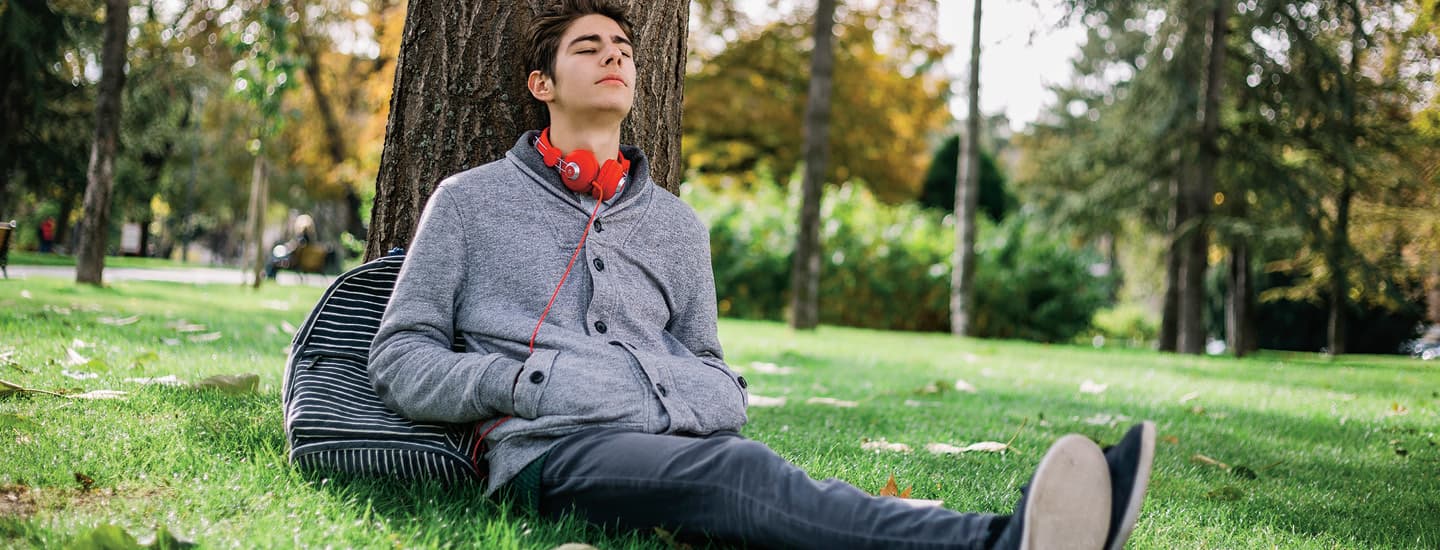Ben Ballman was busier—and more anxious—than he’d ever been before by the time he reached his junior year in high school.
“I had moments where it felt like the whole world was coming down on me,” he says. “It was definitely a really difficult time.”
Before the pandemic shut everything down, his day started at 6:30 a.m., when he woke up to get ready for school. Next came several Advanced Placement courses, then either soccer practice or his job at a plant nursery, studying for the SAT, and various extracurricular activities. He often didn’t start his homework until 11 p.m. and finally went to bed three hours later. Every day it was the same grueling schedule.
“It’s not even that I was going above and beyond; it was, ‘This is the bare minimum,’” says Ballman, now 19 and a recent graduate of Winston Churchill High School in Maryland. “It’s like a pressure cooker that’s locked down. There’s nowhere to escape. Eventually you just kind of burst at some point, or, hopefully, you can get through it.”
Faced with high stress levels among adolescents and a mental health crisis that includes rising suicide rates, some states are now allowing students to declare a mental health day. In the past few years, Arizona, Colorado, Connecticut, Illinois, Maine, Nevada, Oregon, Utah, and Virginia have all passed bills permitting students to be absent from school for mental or behavioral health reasons, efforts that were often aided or spearheaded by young people.
By his junior year in high school, Ben Ballman was busier and more anxious than he’d ever been before.
“I had moments where it felt like the whole world was coming down on me,” he says. “It was definitely a really difficult time.”
Before the pandemic shut everything down, his day started at 6:30 a.m., when he woke up to get ready for school. Next came several Advanced Placement courses. After school, he either went to soccer practice or his job at a plant nursery. And he also spent a lot of time studying for the SAT or doing other after-school activities. That meant that he often didn’t start his homework until 11 p.m. Then he finally went to bed three hours later. Every day it was the same packed, brutal schedule.
“It’s not even that I was going above and beyond; it was, ‘This is the bare minimum,’” says Ballman, now 19 and a recent graduate of Winston Churchill High School in Maryland. “It’s like a pressure cooker that’s locked down. There’s nowhere to escape. Eventually you just kind of burst at some point, or, hopefully, you can get through it.”
Adolescents are dealing with high stress levels and a mental health crisis that includes rising suicide rates. In response, some states are now allowing students to declare a mental health day. In the past few years, Arizona, Colorado, Connecticut, Illinois, Maine, Nevada, Oregon, Utah, and Virginia have all passed bills allowing students to be absent from school for mental or behavioral health reasons. These efforts were often aided or led by young people.

